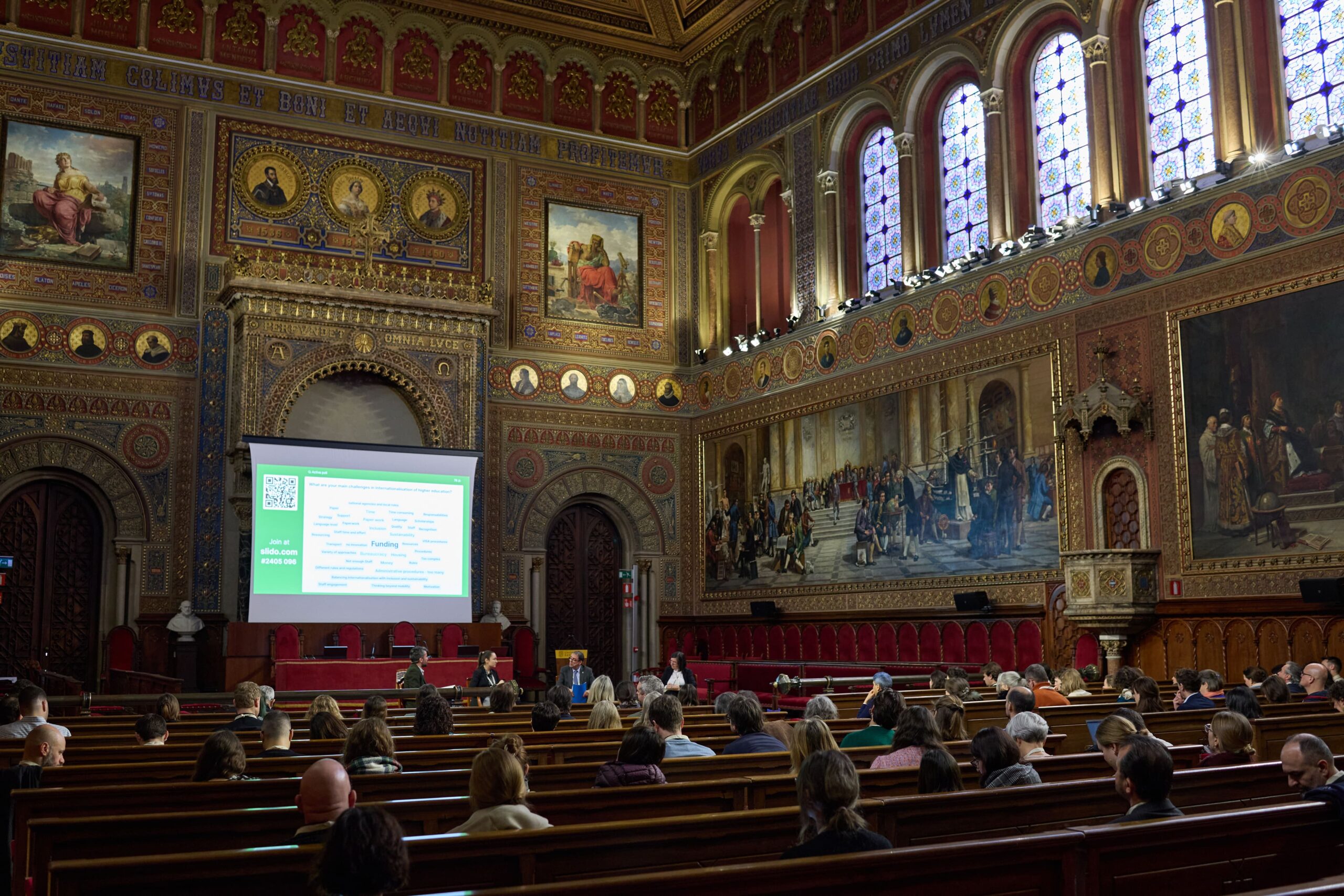After three insightful days, the second edition of the Student Mobility Summit “More Mobility Less Carbon Footprint” has concluded. Hosted at the University of Barcelona, this event brought together sustainability experts, policymakers, university representatives, and student voices to tackle one of the most pressing challenges in higher education: how to reconcile ambitious student mobility goals with environmental sustainability.
The 2025 edition featured a rich programme that engaged participants with a variety of session types, from roundtables and hackathons to training sessions and hands-on workshops. By addressing the topic of sustainable student mobility from multiple angles, the summit provided a comprehensive approach to the challenges and opportunities at hand. The diversity of formats encouraged dynamic interactions, allowing attendees to translate ideas into action plans and dive deep into the discussions while fostering creative problem-solving.
Key Discussions and Takeaways
From the opening session to the final roundtable, the discussions were both thought-provoking and solution-oriented. The summit provided a platform to exchange ideas, showcase innovative practices, and explore ways to reduce the carbon footprint of mobility while maintaining its accessibility and inclusivity.
Some key themes that emerged:
- Sustainable Travel Alternatives: Participants discussed the importance of incentivising train/bus travel and improving infrastructure for greener journeys.
- Institutional Commitments: Universities are increasingly integrating sustainability into their internationalisation policies, but stronger coordination and monitoring are needed to scale these efforts.
- Student Perspectives Matter: Engaging students in shaping sustainable mobility policies is essential to ensuring their feasibility and effectiveness.
- Feature Success Stories: Promoting real-life testimonials and tips is instrumental to collectively changing the paradigm around what a mobility experience can be.
Positive Examples and Good Practices
Throughout the event, several good practices and positive examples were presented, underscoring the progress being made in sustainable student exchanges. Notable initiatives included:
- University of Zurich’s Sustainable Travel Policy: Presented by Afra Schacher, this new policy aims to promote sustainable travel options for students, with a focus on reducing the carbon footprint of mobility programs.
- The U!Train Blended Intensive Programme: Lourdes Reig from Universitat Politecnica de Catalunya shared this innovative program, which combines both physical and virtual components to reduce the need for travel while maintaining an international learning experience.
- The Sustainable Erasmus+ Travel Project: This initiative offers valuable resources for greener travel within Erasmus+ and beyond, including an interactive repository of “Green Competences.” This list highlights the diverse transversal skills students can enhance when travelling sustainably.
The conversations in Barcelona reaffirmed that, while the path to sustainable student mobility is complex, it is not without solutions. Tools, strategies, and policy recommendations exist, but their implementation requires continued collaboration, commitment, and innovation.

Group picture – Student Mobility Summit 2025

